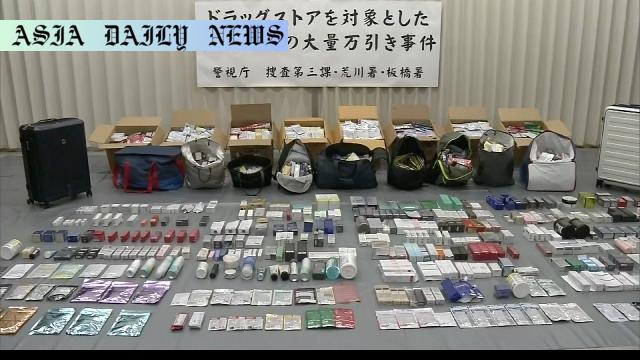Shoplifting: Vietnam pledges to work with Japan to tackle shoplifting issues involving Vietnamese gangs targeting high-demand goods.

Understanding the Shoplifting Crisis
In recent years, shoplifting involving foreign nationals has become a major concern for Japanese authorities. Among these cases, Vietnamese shoplifting groups have drawn significant attention due to their organized modus operandi and the sheer volume of goods being stolen. These groups have been accused of targeting high-demand products, such as cosmetics and pharmaceuticals, which are then exported to Vietnam for resale.
Vietnam’s Response to the Problem
Vietnam’s Ministry of Foreign Affairs has pledged to cooperate with Japanese agencies in tackling this issue. Spokesperson Pham Thu Hang emphasized that relevant Vietnamese institutions in Japan have been instructed to coordinate closely with local authorities. This effort aims to track down and dismantle these shoplifting networks, ensuring accountability and preventing future incidents.
The Role of Technology in Shoplifting
Japanese police have identified the use of technology as a key factor in the effectiveness of these shoplifting rings. Communication apps are being leveraged by group leaders to instruct members on what items to steal, further highlighting the organized nature of this crime. This technological aspect complicates the enforcement efforts but also provides authorities with digital trails to investigate.
High Demand for Japanese Goods
Japanese cosmetics and pharmaceutical products are highly sought after in Vietnam due to their quality and reliability. The demand has soared even higher as Vietnamese authorities crack down on counterfeit items, driving up the market value for genuine Japanese products. Unfortunately, this has also made such goods prime targets for organized theft.
Ongoing Collaboration and Future Steps
The ongoing collaboration between the two nations signals a strong mutual commitment to addressing cross-border crime. Beyond apprehending current offenders, one critical focus will be on deterring future incidents. This could involve stricter monitoring at retail and export levels as well as enhanced bilateral agreements on criminal justice procedures.
Implications for International Relations
While these shoplifting incidents strain relations, the prompt response from both governments showcases effective diplomacy in action. This cooperative approach not only helps solve the immediate issue but also strengthens future bilateral ties between Vietnam and Japan, reinforcing a partnership based on trust and mutual interest.
Ultimately, the Vietnamese and Japanese governments remain committed to resolving this issue, ensuring a safer and more transparent environment for trade and international relations.
Commentary
Tackling Organized Shoplifting Together
The collaboration between Vietnam and Japan to address the recent spate of organized shoplifting is a testament to the importance of international cooperation in combating cross-border crime. This issue not only involves theft but also highlights the complexities of modern-day trade and law enforcement challenges that arise from globalization.
The Underlying Demand Driving the Problem
It’s interesting to note how consumer demand in Vietnam for high-quality Japanese goods indirectly fuels these criminal activities. Organized shoplifting syndicates have cleverly exploited this demand, creating a black-market supply chain that circumvents legal and ethical trade channels. Tackling this issue requires addressing both the supply side of the theft and the demand side by educating consumers about the negative impacts of buying such resold goods.
The Role of Law Enforcement and Technology
The use of communication apps by these shoplifting groups demonstrates a significant challenge for law enforcement. However, it also provides an opportunity. Digital footprints left by these apps can lead to stronger investigative breakthroughs if properly harnessed. Technology can be a double-edged sword in such cases—equally benefiting criminals and authorities alike.
Building Long-Term Solutions
Both nations have shown commendable resolve in addressing this issue, but long-term solutions must be systemic. Stricter regulations, consumer awareness campaigns, and technological safeguards are essential. Furthermore, strengthening trust between countries through transparent actions will ensure that such transnational crimes are curtailed effectively.
This issue is a critical reminder that international crimes require international solutions. Let’s hope the cooperation between Vietnam and Japan sets a precedent for similar efforts globally.


